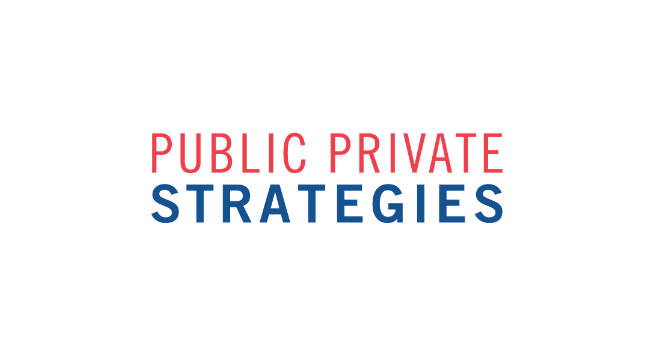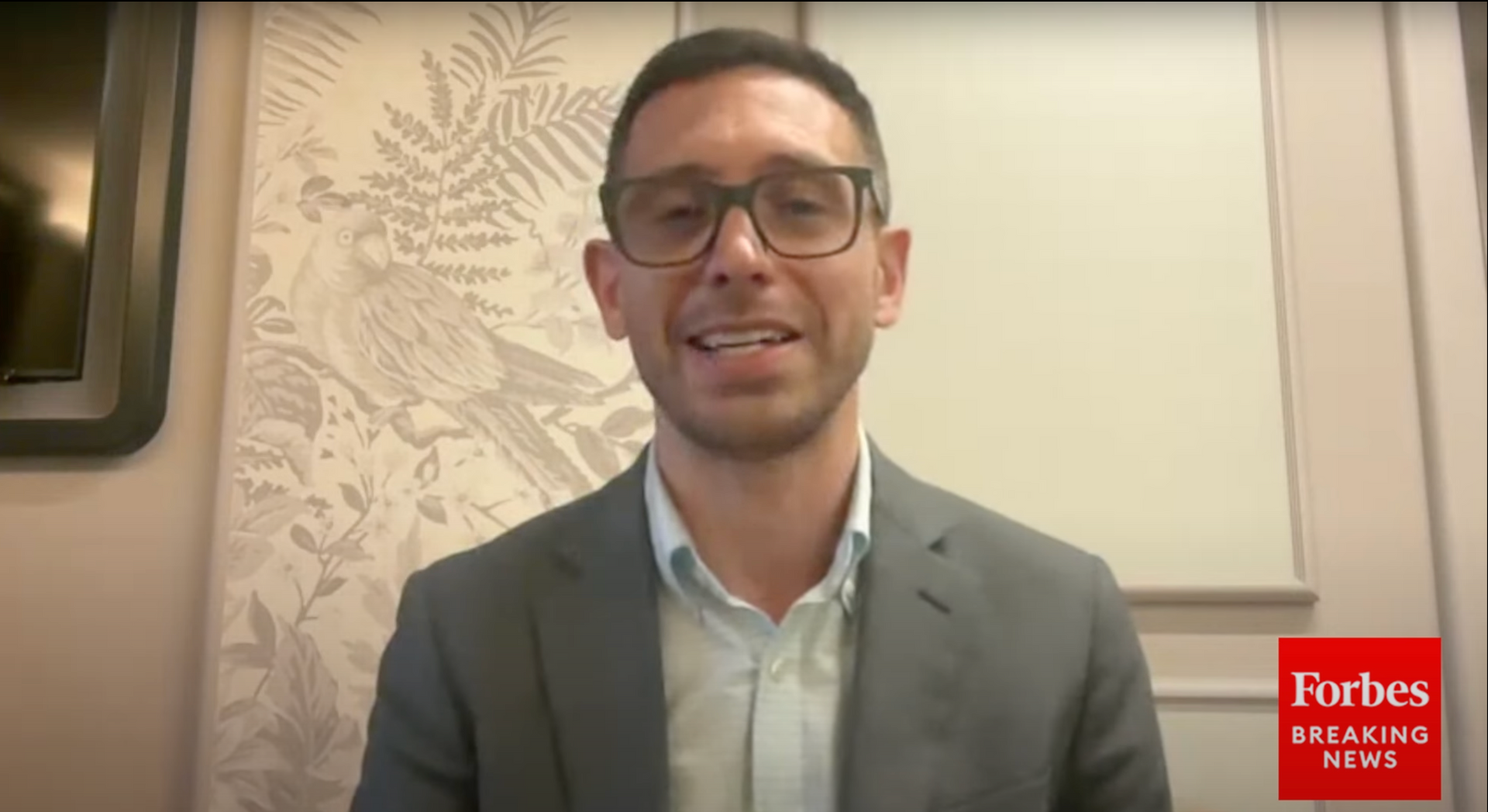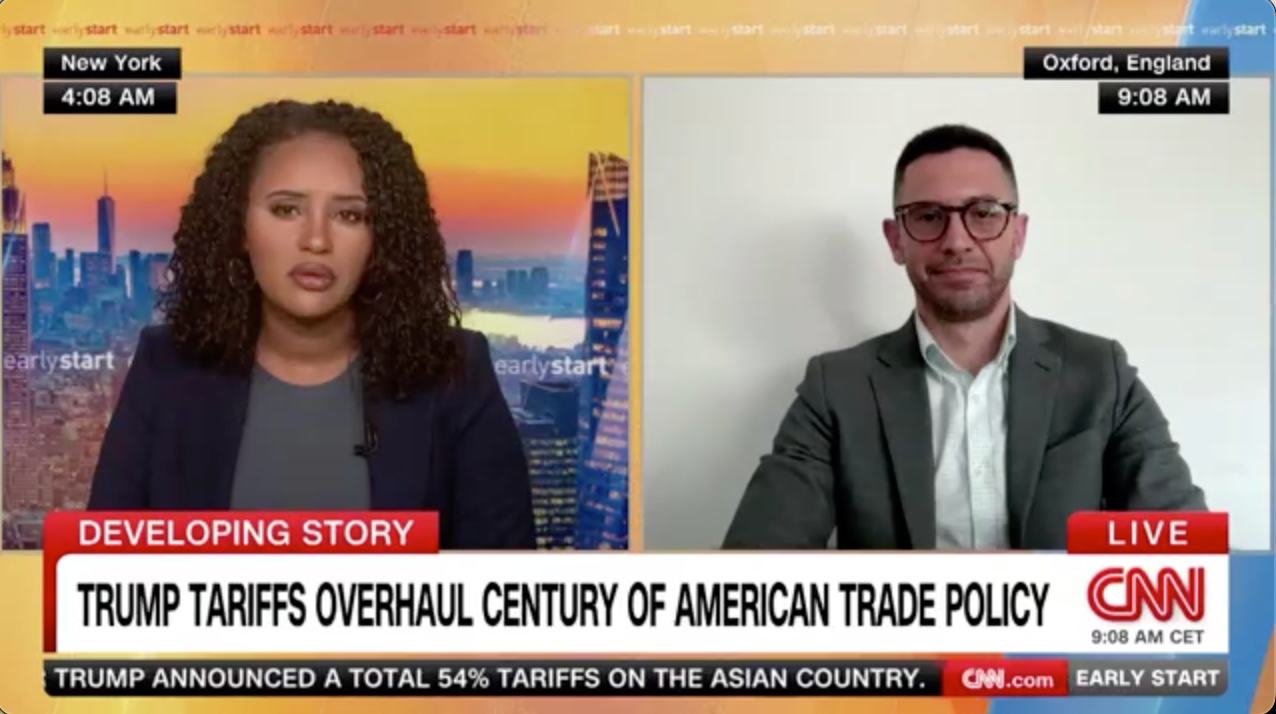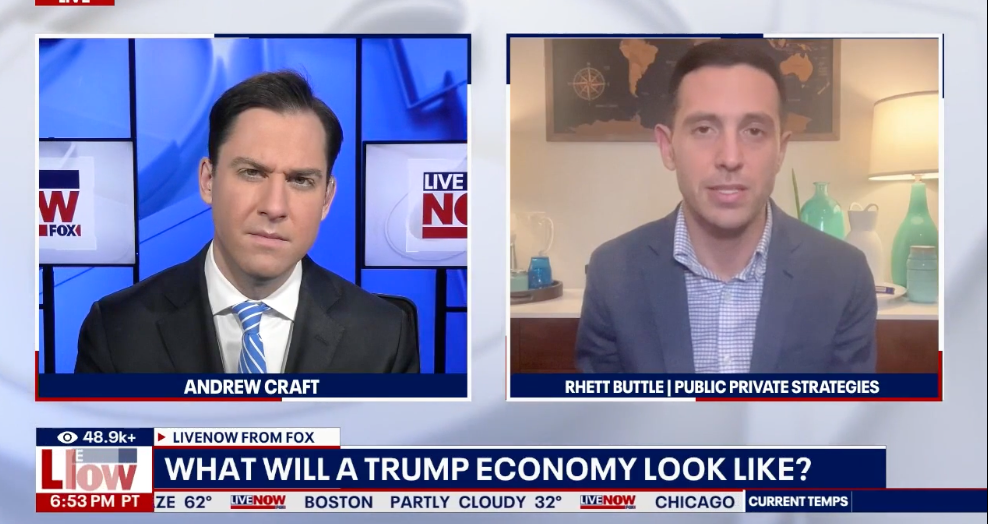Financial Security For Black Business Owners: A Conversation With Black Economic Alliance Executive Director David Clunie
Covid-19, the murder of George Floyd, and attempts to overturn the 2020 presidential election exposed longstanding racial disparities in the United States. In the midst of this unrest, Black small business owners were disproportionately impacted by the economic fallout from the pandemic.
As signs of fully reopening continue to emerge thanks to the vaccines, a
majority of Black business owners are optimistic about the future of their business. However, efforts to pass restrictive voting laws in a number of states threaten prosperity and financial stability for all Black Amercans.
As Executive Director of the
Black Economic Alliance (BEA), David Clunie leads a coalition of Black business leaders and aligned advocates committed to driving economic progress for the Black community through public policy, advocacy, and engagement with business and government executives, including the Biden Administration. Prior to joining the alliance, David was the Executive Secretary of the U.S. Department of the Treasury and a senior member of the Corporate Responsibility department at JPMorgan Chase & Co.
I recently had the opportunity to discuss the BEA with David and ways business owners can combat voter suppression. I appreciate him taking the time and below is a summary of our conversation.
Rhett Buttle: Can you tell me more about the Black Economic Alliance, including when it was launched and its role in supporting Black business owners?
David Clunie: Organizational planning to form the Black Economic Alliance began shortly after the 2016 presidential election, and was formally launched in early 2018. BEA’s primary objectives are to build sustainable systems that drive Black economic mobility at scale and foster the development of generational wealth, with a focus on work, wages, and wealth. BEA leverages the collective dollars, expertise, and networks of some of America’s most successful Black business leaders to dismantle persistent systems of racial inequality in the pursuit of economic prosperity for Black Americans.
Business ownership is one of the fastest pathways to wealth-building, but for far too long, Black Americans have suffered disproportionate exclusion from the various points of entry to start and scale a successful business, especially equal access to capital through traditional sources like commercial bank loans, as well as alternative investments like venture capital. That’s why we’re laser-focused on advocating for comprehensive changes in the private, public, and philanthropic sectors to create a new, more inclusive economic ecosystem that provides opportunities for Black business owners to start, support, and scale successful businesses.
Rhett Buttle: This past year exposed how systemic racism has impacted the health and wealth of Black Americans. How have you thought about this past year and where we need to go moving forward?
David Clunie: This past year has made it more evident than ever that every American institution was not built to include Black people equally. The so-called racial reckoning of 2020 has made it clear that we need to proactively educate the many Americans who do not understand the Black experience. Nor do those individuals fundamentally understand the pervasive impact of persistent racism and inequality, and how it created and continued to reinforce the racial wealth gap, among other Black-White gaps in the American experience.
Building a more equitable economy requires an all-hands-on-deck commitment to systems change among the public, private, and nonprofit sectors. Everyone must utilize their resources to build a new economic infrastructure that drives equity for Black Americans—and all Americans—in a way the U.S. economy has never before, and was never built to do. Not only is it the right thing to do, but it is also the economically prudent thing to do. According to a McKinsey report, if we were to close the racial wealth gap between Black and White Americans by 2028, we could grow U.S. GDP by 4-6%. In other words, we’re losing out on over $1 trillion (in 2018 dollars) of growth for the U.S. economy every year if we don’t fix this problem.
Rhett Buttle: You recently forged a partnership with Spelman College and Morehouse College to create the Center for Black Entrepreneurship. Can you describe why this Center is needed to help remove the barriers to Black entrepreneurship and your vision for it?
David Clunie: Historically Black Colleges and Universities (HBCUs) have been engines for social and economic mobility for Black Americans for over 150 years. The Center for Black Entrepreneurship (CBE) seeks to break down the access barrier between Black entrepreneurs, professional investors, and business builders by leveraging education, mentorship, access to capital, and opportunity as drivers of success for Black businesses. Building on the strong existing culture of entrepreneurship at Spelman and Morehouse, two of the country’s highest performing HBCUs, the CBE will grow the pipeline of Black business talent and innovation and help bridge the divide between the business and technology sectors and the next generation of Black entrepreneurs. BEA has a view toward scaling the CBE to create a network of centers for Black entrepreneurship throughout the rich pool of talent in the vast HBCU student and alumni networks from over 100 HBCUs nationwide.
Creating this kind of ecosystem and exposure among the most successful businesses, entrepreneurs, investors and some of the brightest minds in America from Spelman and Morehouse Colleges is a sure-fire way to advance the multiplier effect of creating more successful Black entrepreneurs. Those Black entrepreneurs will hire more Black workers; invest their time, knowledge, and capital into the success of other Black businesses; and invest in fortifying Black communities nationwide.
Rhett Buttle: The Covid-19 pandemic disproportionately impacted Black-owned businesses. What types of measures are needed for equitable rebuilding and recovery?
David Clunie: To truly rebuild equitably, we need to confront the incredible disparities Black businesses have experienced starting and running their businesses relative to other businesses owners to prescribe effective solutions. In lending, for example, we need to facilitate fundamentally better access to capital so more Black founders can get the seed funding they need to start businesses and hire more Black Americans. To generate the kind of sustainability Black businesses need to grow, we must also facilitate access to operating capital at levels and interest rates equal to what White businesses typically receive. We also need to encourage the venture capital community to invest in more Black entrepreneurs, especially Black women founders, who receive even less VC capital than their male counterparts.
To level the playing field and build generational wealth for Black families and communities, we need to overhaul the system to create new talent pipelines, facilitate fair access to affordable financing, support capacity building, encourage government and private sector contracting, and boost equity ownership with a view toward building new economic infrastructure that builds wealth for Black businesses and communities to help grow the entire U.S. economy.
Rhett Buttle: We’re seeing states across the country pass or attempt to pass restrictive voter laws. What can business leaders do to combat them?
David Clunie: The right to vote is fundamental to the American experience and our democracy. It should not be a partisan issue. BEA believes the right to vote and maintaining a strong, functioning democracy are important priorities to all Americans. Businesses, in particular, have a vested interest in fostering a stable environment of representative democracy where all of their stakeholders are included because instability and uncertainty are bad for business.
Business leaders can do their part by continuing to speak up for American voters, take the partisanship out of voter engagement, and use their resources to help expand greater access to the ballot box. Business leaders can take steps such as:
Giving employees paid time off to vote;- Promoting education and reliable information around voting integrity, security, and access;
- Encouraging their stakeholders to do their civic duty by voting, similar to the support companies give for employees to complete jury duty;
- Using their vast resources and influence to support federal legislation that creates a national minimum standard of voting rights in federal elections that will serve as a model and guide for all states to follow.
Rhett Buttle: Are there resources available to support small businesses in combating voter suppression?
David Clunie: Small businesses are the backbone of our economy. Not only do they serve the communities in which they are located, they double as community centers and information hubs for many. That local coffee shop in your neighborhood isn’t just where you can get a cup of joe; it’s where you can pick up a pamphlet or two and learn something new. They are places where one can distribute educational literature, advertise important civic reminders like deadlines for voter registration, early voting, and voting on election day, and they can even offer their business spaces to hold registration drives where voters can sign up and get educated—which may help drive more activity toward their businesses in turn.
Some trusted organizations that provide helpful educational materials and resources include the NAACP Legal Defense and Educational Fund, the Brennan Center for Justice, and Small Business for America’s Future.
This piece originally appeared in Forbes on August 30, 2021. You can view it online here.
Rhett Buttle is the founder of Public Private Strategies, Executive Director of the Small Business Roundtable, Founder of the NextGen Chamber of Commerce, a Senior Fellow at The Aspen Institute, and a contributor for Forbes.
WANTING MORE NEWS? SIGNUP TODAY
Contact Us







